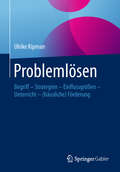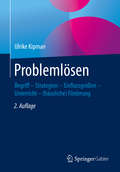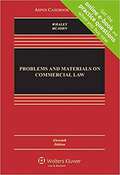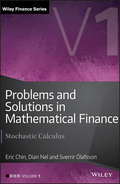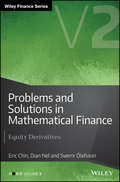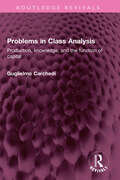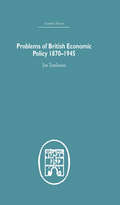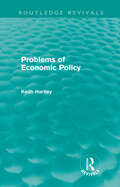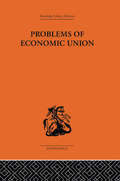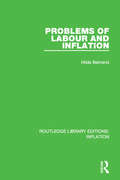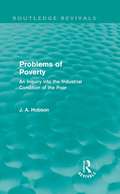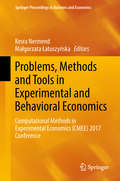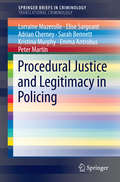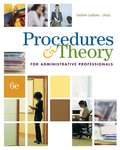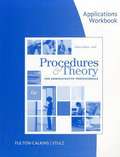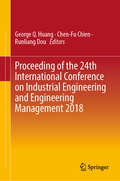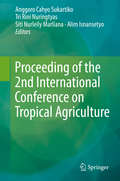- Table View
- List View
Problemlösen: Begriff – Strategien – Einflussgrößen – Unterricht – (häusliche) Förderung
by Ulrike KipmanProblemlösen gilt als eine der Schlüsselqualifikationen des 21. Jahrhunderts. Es geht beim Problemlösen nicht nur darum, Informationen sinnvoll zu vernetzen, dynamisch in Beziehung zu setzen, Wahrscheinlichkeiten zu berechnen und eine Kette richtiger Entscheidungen zu treffen, sondern auch vielfach darum, eine Vielzahl an Außenkriterien zu berücksichtigen und ein entsprechendes „Weltwissen“ an den Tag zu legen. Dieses Buch soll die Frage beantworten, wie man zu einem guten Problemlöser / einer guten Problemlöserin werden kann bzw. warum bestimmte Personen bei der Lösung von Problemen erfolgreicher sind als andere. Nach einer umfassenden Zusammenstellung der Literatur zu diesem Thema werden Einflussgrößen auf das Problemlösen analysiert und miteinander abgeglichen und Ideen für den Unterricht in der Primarstufe und Sekundarstufe I präsentiert. Zudem werden verschiedene Arten des Unterrichts im Hinblick auf die Wirksamkeit für unterschiedliche Personengruppen diskutiert, dies vor dem Hintergrund, dass nicht nur Problemstellungen stark variieren sondern auch die Problemlöser/innen. Eine Handreichung mit Brettspielen, die die Kriterien des Problemlösens erfüllen, ist ebenfalls Teil dieses Buches. Letztendlich wird ein Modell vorgeschlagen, welches erfolgreiches Problemlösen vielschichtig zu erklären versucht.
Problemlösen: Begriff – Strategien – Einflussgrößen – Unterricht – (häusliche) Förderung
by Ulrike KipmanProblemlösen gilt als eine der Schlüsselqualifikationen des 21. Jahrhunderts. Es geht beim Problemlösen nicht nur darum, Informationen sinnvoll zu vernetzen, dynamisch in Beziehung zu setzen, Wahrscheinlichkeiten zu berechnen und eine Kette richtiger Entscheidungen zu treffen, sondern auch vielfach darum, eine Vielzahl an Außenkriterien zu berücksichtigen und ein entsprechendes „Weltwissen“ an den Tag zu legen. Dieses Buch soll die Frage beantworten, wie man zu einem guten Problemlöser / einer guten Problemlöserin werden kann bzw. warum bestimmte Personen bei der Lösung von Problemen erfolgreicher sind als andere. Nach einer umfassenden Zusammenstellung der Literatur zu diesem Thema werden Einflussgrößen auf das Problemlösen analysiert und miteinander abgeglichen und Ideen für den Unterricht in der Primarstufe und Sekundarstufe I präsentiert. Zudem werden verschiedene Arten des Unterrichts im Hinblick auf die Wirksamkeit für unterschiedliche Personengruppen diskutiert, dies vor dem Hintergrund, dass nicht nur Problemstellungen stark variieren sondern auch die Problemlöser/innen. Eine Handreichung mit Brettspielen, die die Kriterien des Problemlösens erfüllen, ist ebenfalls Teil dieses Buches. Letztendlich wird ein Modell vorgeschlagen, welches erfolgreiches Problemlösen vielschichtig zu erklären versucht. In der 2. Auflage wurden alle Kapitel überarbeitet und an den neuesten Kenntnisstand zum Thema Problemlösen angepasst. Die Kapitel zur schulischen und häuslichen Förderung der Problemlösekompetenz wurden stark erweitert und es werden nun eine Vielzahl an neuen Aufgaben und Spielen präsentiert, die beim Fördern von Problemlösen eine wertvolle Unterstützung leisten können. Das Kapitel zur Kombinatorik wurde nach der Rückmeldung von Studierenden und Kollegen komplett umstrukturiert und ist nun verständlicher und übersichtlicher aufgebaut.
Problems and Materials on Commercial Law (Aspen Casebook Series)
by Douglas J. Whaley Stephen M. McJohnClear, lucid, and extremely accessible, Problems and Materials on Commercial Law helps students understand black letter law and the statutory language in the Uniform Commercial Code. Concise yet comprehensive coverage includes the most recent case and statutory developments in all fundamental areas of Commercial Law, including sales, payment systems, and secured transactions. A sensible, flexible organization follows the order of UCC Articles 2, 3, 4, and 9, and is adaptable to many teaching styles. Drawing on experience in both teaching and writing, the authors provide thorough and practical coverage using a popular problem approach. <p><p>The text s effective format, manageable length, and inclusion of the most important cases make Problems and Materials on Commercial Law concise and efficient. A Teacher s Manual provides sample syllabi, answers to all the problems in the text, and suggestions on the best ways to teach various topics.
Problems and Methods of Econometrics: The Poincaré Lectures of Ragnar Frisch 1933 (Routledge Studies in the History of Economics)
by Ragnar FrischThe development of economics changed dramatically during the twentieth century with the emergence of econometrics, macroeconomics and a more scientific approach in general. One of the key individuals in the transformation of economics was Ragnar Frisch, professor at the University of Oslo and the first Nobel Laureate in economics in 1969. He was a co-founder of the Econometric Society in 1930 (after having coined the word econometrics in 1926) and edited the journal Econometrics for twenty-two years. The discovery of the manuscripts of a series of eight lectures given by Frisch at the Henri Poincaré Institute in March–April 1933 on The Problems and Methods of Econometrics will enable economists to more fully understand his overall vision of econometrics. This book is a rare exhibition of Frisch’s overview on econometrics and is published here in English for the first time. Edited and with an introduction by Olav Bjerkholt and Ariane Dupont-Kieffer, Frisch’s eight lectures provide an accessible and astute discussion of econometric issues from philosophical foundations to practical procedures. Concerning the development of economics in the twentieth century and the broader visions about economic science in general and econometrics in particular held by Ragnar Frisch, this book will appeal to anyone with an interest in the history of economics and econometrics.
Problems and Solutions in Mathematical Finance
by Sverrir Olafsson Eric Chin Dian Nelnd those involved in teaching in this field of study, Stochastic Calculus provides a valuable reference book to complement one's further understanding of mathematical finance.
Problems and Solutions in Mathematical Finance: Equity Derivatives, Volume 2
by Eric Chin Dian Nel Sverrir ÓlafssonDetailed guidance on the mathematics behind equity derivatives Problems and Solutions in Mathematical Finance Volume II is an innovative reference for quantitative practitioners and students, providing guidance through a range of mathematical problems encountered in the finance industry. This volume focuses solely on equity derivatives problems, beginning with basic problems in derivatives securities before moving on to more advanced applications, including the construction of volatility surfaces to price exotic options. By providing a methodology for solving theoretical and practical problems, whilst explaining the limitations of financial models, this book helps readers to develop the skills they need to advance their careers. The text covers a wide range of derivatives pricing, such as European, American, Asian, Barrier and other exotic options. Extensive appendices provide a summary of important formulae from calculus, theory of probability, and differential equations, for the convenience of readers. As Volume II of the four-volume Problems and Solutions in Mathematical Finance series, this book provides clear explanation of the mathematics behind equity derivatives, in order to help readers gain a deeper understanding of their mechanics and a firmer grasp of the calculations. Review the fundamentals of equity derivatives Work through problems from basic securities to advanced exotics pricing Examine numerical methods and detailed derivations of closed-form solutions Utilise formulae for probability, differential equations, and more Mathematical finance relies on mathematical models, numerical methods, computational algorithms and simulations to make trading, hedging, and investment decisions. For the practitioners and graduate students of quantitative finance, Problems and Solutions in Mathematical Finance Volume II provides essential guidance principally towards the subject of equity derivatives.
Problems in Class Analysis: Production, knowledge, and the function of capital (Routledge Revivals)
by Guglielmo CarchediFirst published in 1983, Problems in Class Analysis presents a coherent theory of labour’s domination by capital, based upon the notion of the capitalist nature of both the product relations and of the productive forces themselves, including science and technology. The author demonstrates that all knowledges are a product, direct or indirect, of economic relations, so that different knowledges will be the product of different social classes as determined by their position within economic production relations. By posing and re-solving fundamental problems in class analysis, Dr. Carchedi forms a bridge between the theory of the production process and contemporary debates in economics, sociology and epistemology.
Problems of British Economic Policy, 1870-1945
by Jim TomlinsonMost historical accounts of economic policy set out to describe the way in which governments have attempted to solve their economic problems and to achieve their economic objectives. Jim Tomlinson, however, focuses on the problems themselves, arguing that the way in which areas of economic policy become ‘problems’ for policy makers is always problematic itself, that it is never obvious and never happens ‘naturally’. This approach is quite distinct from the Marxist, the Keynesian or the neo-classical accounts of economic policy, the schools of thought which are described and criticized in the introduction. Subsequent chapters use the issues of unemployment, the gold standard and problems of trade and Empire to demonstrate that these competing accounts all obscure the true complexities of the process. Because they adhere to simple assumptions about the role of economic theory or of ‘vested interests’ previous histories have been unable adequately to explain the dramatic change after the First World War in attitudes to unemployment, for instance, or the decision to return to gold in 1925. Jim Tomlinson surveys the institutional circumstances, the conflicting political pressures and the theories offered at the time in an attempt to discover the conditions which characterized the questions as economic problems and contributed to the choice of ‘solutions’. The result is a sophisticated and intellectually compelling account of matters which have remained at the forefront of political debate since its first publication in 1981.
Problems of Economic Policy (Routledge Revivals #No. 3)
by Keith HartleyFirst published in 1977, this is an applied economics text, in which the basic theory of any introductory economics couurse is applied to a whole range of UK macro- and micro-economic policy issues. The book is designed specifically for first and second year university students, with the aim of demonstrating the relevance of theory to policy, how theory can be applied to policy problems and, in the process, to improve their understanding of the theory itself.
Problems of Economic Union
by J. E. MeadeDiscussing the main problems in the formation of an Economic Union, this book analyses the extent to which national governments would have to give up their freedom of action in domestic monetary, budgetary, fiscal and economic policies if they were to form an effective economic union. The issues of commercial policy, financial and exchange-rate policies, of migration and investment and of the finance of a common defence budget are all covered.
Problems of International Money, 1972-85
by Michael PosnerA report from the International Monetary Fund.
Problems of Labour and Inflation (Routledge Library Editions: Inflation)
by Hilde BehrendThe essays in this book, originally published in 1984, examine many problems within the structure of industry including wage policies, financial incentives and other economic policies. The book discusses the problems from two standpoints: that of the economist who is concerned with labour as a resource and the psychologist concerned with the behavioural activity of the labour force. This inter-disciplinary approach ensures the relevance of the essays to social scientists, managers and policy-makers.
Problems of Monopoly and Economic Warfare (Routledge Library Editions: Industrial Economics #25)
by F. ZeuthenThis book, first published in 1930 and reissued in 1968, treats a group of problems arising when competition is either precluded or limited. It examines absolute and limited monopoly; cases in which a few enterprises compete; cases in which two or three enterprises or organisations face one another as buyer and seller. The underlying general problem is the price in markets where there is only a limited number of enterprises.
Problems of Nationalized Industry (Routledge Revivals)
by William A. RobsonFirst Published in 1952, Problems of Nationalized Industry presents the first serious discussion on the issues related to nationalization of industries in Britain during the first half of the twentieth century. Part I includes fourteen essays on the general framework of public corporations; methods of assessing compensation; the organization of nationalized industries; labour and staff problems; joint consultation between management and workers; finance and price policy; scientific research and development; and a comparison between nationalization in England and France. Part II consists of a substantial body of general conclusions which are related to the earlier chapters. This book is a must read for scholars and researchers of British politics, labour politics, labour economics and political science.
Problems of Poverty: An Inquiry into the Industrial Condition of the Poor (Routledge Revivals)
by J. A. HobsonFirst published in 1891, this seminal work examines the primary causes of poverty during the industrial age. Through considering how poverty is measured, the growth of urbanisation and the supply of low-skilled labour in the workforce, Hobson arrives at possible solutions to the problem of poverty and explores the ethical issues surrounding it.
Problems of Resettlement on Saipan, Tinian and Rota, Mariana Islands (Occasional Historical Papers Series No. #7)
by Neal M. BowersInvestigation into the problems associated with re-establishing a sustainable economy in the war-ravaged Northern Mariana Islands.
Problems of a New World (Routledge Revivals)
by J.A. HobsonFirst published in 1921, Problems of a New World deals with the economic and political issues that arose from the First World War. The first three parts of the study consider the world before the war, and the interests, purposes and ideals which influenced the national psyche during the years which followed. In the final two parts, Hobson assesses the political and economic conditions confronted by the post-war world, with a particular focus on the impact of war on industry, labour and the ideals of nationhood. This is an important work, of great interest to modern European and economic historians and students.
Problems, Methods and Tools in Experimental and Behavioral Economics: Computational Methods in Experimental Economics (CMEE) 2017 Conference (Springer Proceedings in Business and Economics)
by Kesra Nermend Małgorzata ŁatuszyńskaThese proceedings highlight research on the latest trends and methods in experimental and behavioral economics. Featuring contributions presented at the 2017 Computational Methods in Experimental Economics (CMEE) conference, which was held in Lublin, Poland, it merges findings from various domains to present deep insights into topics such as game theory, decision theory, cognitive neuroscience and artificial intelligence. The fields of experimental economics and behavioral economics are rapidly evolving. Modern applications of experimental economics require the integration of know-how from disciplines including economics, computer science, psychology and neuroscience. The use of computer technology enhances researchers’ ability to generate and analyze large amounts of data, allowing them to use non-standard methods of data logging for experiments such as cognitive neuronal methods. Experiments are currently being conducted with software that, on the one hand, provides interaction with the people involved in experiments, and on the other helps to accurately record their responses. The goal of the CMEE conference and the papers presented here is to provide the scientific community with essential research on and applications of computer methods in experimental economics. Combining theories, methods and regional case studies, the book offers a valuable resource for all researchers, scholars and policymakers in the areas of experimental and behavioral economics.
Procedural Justice and Legitimacy in Policing
by Peter Martin Adrian Cherney Sarah Bennett Lorraine Mazerolle Elise Sargeant Kristina Murphy Emma AntrobusThis brief focuses on the "doing" of procedural justice: what the police can do to implement the principles of procedural justice, and how their actions can improve citizen perceptions of police legitimacy. Drawing on research from Australia (Mazerolle et al), the UK (Stanko, Bradford, Jackson etc al), the US (Tyler, Reisig, Weisburd), Israel (Jonathon-Zamir et al), Trinidad & Tobago (Kochel et al) and Ghana (Tankebe), the authors examine the practical ways that the police can approach engagement with citizens across a range of different types of interventions to embrace the principles of procedural justice, including: · problem-oriented policing · patrol · restorative justice · reassurance policing · and community policing. Through these examples, the authors also examine some of the barriers for implementing procedurally just ways of interacting with citizens, and offer practical suggestions for reform. This work will be of interest for researchers in criminology and criminal justice focused on policing as well as policymakers.
Procedural Rights in Competition Law in the EU and China
by Caroline Cauffman Qian HaoThe book examinesthe rights of defendants in infringement procedures and those of the notifyingparties in merger proceedings before the European Commission and the Chinesecompetition authorities. The initial chapters offer a general introduction toEU and Chinese competition law respectively, paying particular attention to thesubstantive rules of competition law. Subsequent chapters present an overviewof the procedural rights of the notifying parties in merger cases in both legalsystems surveyed, address the procedural rights of defendants in infringementcases, and provide an international perspective on differences in the notification and enforcement procedures between legal systems. The final chapter drawscomparative conclusions and includes a number of suggestions for improvement.
Procedures and Theory for Administrative Professionals (6th edition)
by Patsy Fulton-Calkins Karin M. StulzIn today's dynamic workplace, administrative professionals must be able to adjust to a diversified workforce with emerging technologies and be prepared to function in an expanding and global marketplace. From hard skills to soft skills, PROCEDURES AND THEORY FOR ADMINISTRATIVE PROFESSIONALS, 6e equips you to handle whatever workplace challenges may come your way by providing instruction and activities directed toward technology, communication, and human relations. Its emphasis on critical thinking, creative thinking, and lifelong learning gives you opportunities for unique solutions and ideas. Reflecting a changing marketplace, the sixth edition includes a host of new topics, ranging from business etiquette and e-commerce to globalization and security, and is packed with career tips, professional points, and critical-thinking activities. Comprehensive and practical, this text is an excellent resource for those seeking entry-level assistant positions, preparing for promotion opportunities, or transitioning to a job of greater responsibility.
Procedures and Theory for Administrative Professionals: Applications Workbook (6th edition)
by Patsy Fulton-Calkins Karin M. StulzThis new edition of Procedures and Theory for the Administrative Professional is designed to prepare the administrative professional to fulfill a challenging role in today's workplace. Employees must be able to adjust to a diversified workforce with emerging technologies and be prepared to function in an expanding and global marketplace. This text equips users to better handle these changes by providing instruction and activities directed toward technology, communication and human relations. The creative thinking and lifelong learning encouraged provides users with opportunities for unique solutions and ideas.
Procedures for the Office Professional
by Patsy J. FultonDesigned to prepare the office professional to fulfill a challenging role in today's workplace.
Proceeding of the 24th International Conference on Industrial Engineering and Engineering Management 2018
by Chen-Fu Chien Runliang Dou George Q. HuangThis book records the new research findings and development in the field of industrial engineering, and it will serve as the guidebook for the potential development in industrial engineering and smart manufacturing. It gathers the accepted papers from the 24th International conference on Industrial Engineering and Engineering Management held at Central South University of Forestry and Technology in Changsha during May 19-20, 2018. The aim of this conference was to provide a high-level international forum for experts, scholars and entrepreneurs at home and abroad to present the recent advances, new techniques and application, to promote discussion and interaction among academics, researchers and professionals to promote the developments and applications of the related theories and technologies in universities and enterprises, and to establish business or research relations to find global partners for future collaboration in the field of Industrial Engineering. It addresses diverse themes in smart manufacturing, artificial intelligence, ergonomics, simulation and modeling, quality and reliability, logistics engineering, data mining and other related fields. This timely book summarizes and promotes the latest achievements in the field of industrial engineering and related fields over the past year, proposing prospects and vision for the further development.
Proceeding of the 2nd International Conference on Tropical Agriculture
by Alim Isnansetyo Tri Rini Nuringtyas Anggoro Cahyo Sukartiko Siti Nurleily MarlianaThis book covers the sustainable tropical agriculture, sustainable tropical animal production and health, sustainable tropical forestry, socio-economic dimension in tropical agriculture and innovative and emerging food technology and management as chapters in this book. The common challenging problems in plant, animal, and fisheries production in the tropic are climate change, inefficiency production system, low technological innovation, decreasing environment quality, and the outbreak risk of pest and diseases.
